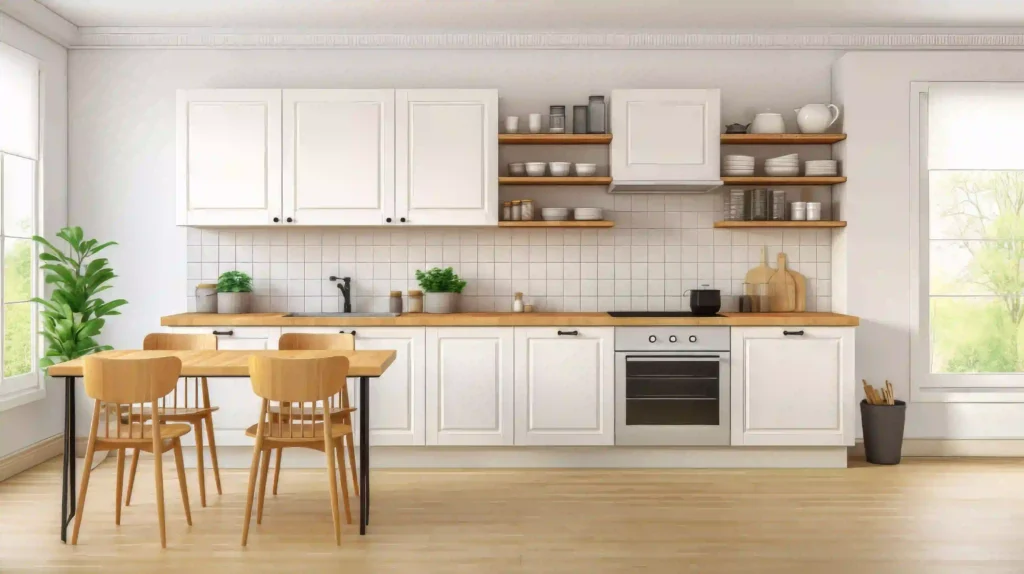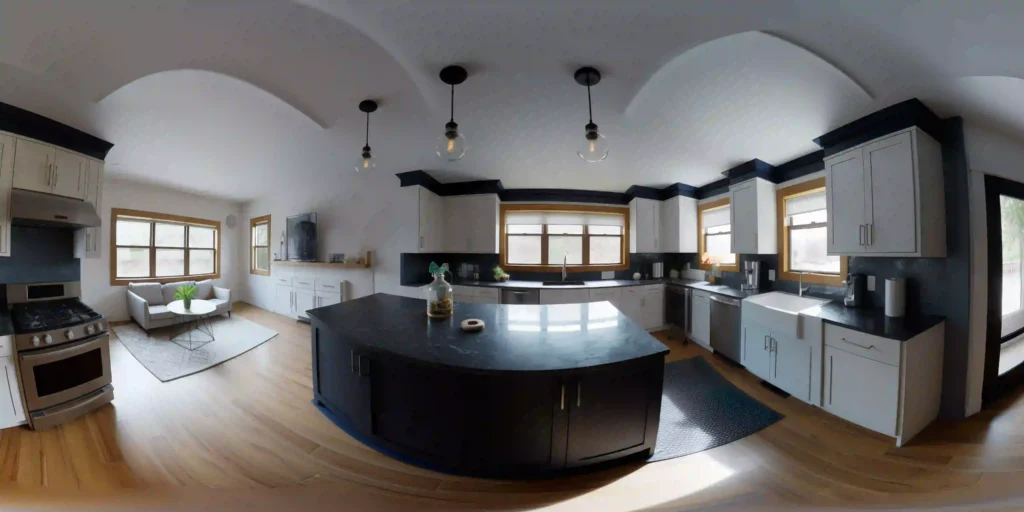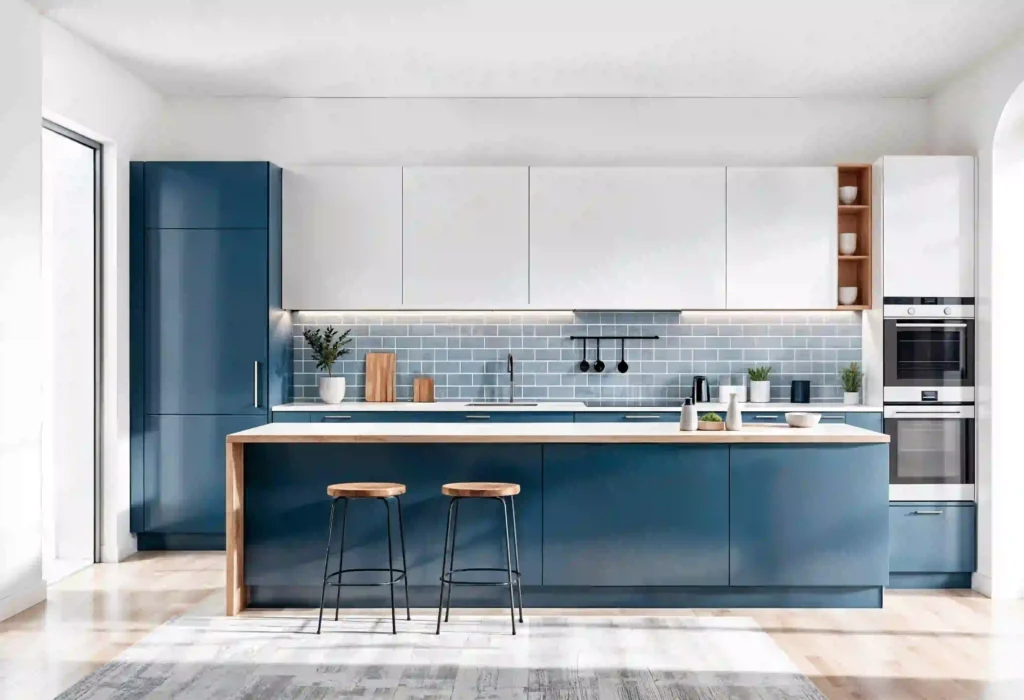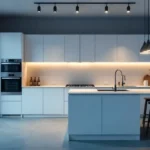Why the Kitchen Is the Heart of a Smarter, Sustainable Home
Your kitchen isn’t just where meals happen—it’s the command center of sustainability, innovation, and timeless design. From jaw-dropping market growth to the rise of eco‐smart tech, here’s why kitchens are more crucial than ever.
1. A Recipe for Growth: The Kitchen Industry Is Booming
-
Stat Watch: The global kitchen cabinetry market alone is projected to reach $73 billion by 2027.
-
Add in smart appliances, sustainable materials, and fixtures, and the industry’s scope only widens.
-
Design trends are also fueling remodels. In the U.S., the average kitchen renovation now costs about $25,000, with some homeowners shelling out as much as $60,000 for major upgrades.
2. Smart, Stylish & Sustainable: What’s Trending in 2025
-
Smart Kitchens: With a global smart kitchen appliances market projected to hit $60 billion by 2030, smart tech is no longer a luxury—it’s mainstream. Voice controls, AI cooking assistants, and IoT-enabled gadgets rule the roost.
-
Eco-Conscious Design: Sustainable materials and energy efficiency are in high demand. For example, eco-friendly materials in cabinetry and countertops rose by 35% in just a few years.
-
Design Evolution:
-
Transitional styles dominate (25% of remodels), blending classic and contemporary aesthetics.
-
Off-white and soft tonal palettes replace stark black and gray kitchens Better Homes.
-
Open, multifunctional spaces are trending—think kitchen islands serving as workstations, lounges, and dining hubs.
-
Vinyl flooring is now the top flooring choice in kitchen remodels.
-
3. Efficiency by Design: Layout & Workflow Principles
Never underestimate the power of layout! The kitchen work triangle—connecting sink, stove, fridge—is the secret to minimizing wasted steps and maximizing prep flow.
Today’s kitchens tailor zones for multiple users, baking stations, and dedicated tasks, making layout both functional and social.
4. Myth-Busters: Kitchen DIY vs. Pro Tips
-
ROI Real Talk: While kitchens improve daily life, they don’t always fully return their cost. Minor remodels offer 72% ROI, major ones about 57%. However, in competitive real estate markets, modern kitchens can command over 120%.
-
Planning Pays Off: Whether major or modest, begin with clear goals, budgeting, and realistic timelines. Expect 6–10 weeks for substantial remodels.
-
Budget-Savvy Choices:
-
Reface cabinets instead of replacing them? Quick math suggests it might cost nearly as much—and offer less value.
-
Sticking to stock or semi-custom cabinetry and cost-effective countertops like laminate can stretch your budget further.
-
Summary Table: Kitchen Quick Stats
| Insight | Data Point |
|---|---|
| Industry size | $73 billion cabinetry market by 2027 |
| Remodel cost | $25,000 (average); up to $60,000 for major work |
| Smart kitchen market | Projected $60 billion by 2030 |
| Eco-materials growth | Uptick of 25–35% across cabinetry & fixtures |
| Leasing ROI | Minor remodel: ~72%; urban markets: up to 120%+ |
| Timeline | 6–10 weeks for a full remodel |
| Layout principle | Work triangle enhances workflow |

5. Kitchen Nightmares: Top Remodeling Mistakes to Avoid
Underestimating Your Budget
It’s easy to dream big, but the costs add up fast. Experts recommend setting aside an additional 15–20% of your kitchen budget for unexpected issues—think water damage, outdated plumbing, or code violations.
“We thought $20K was plenty—until we had to rewire the entire kitchen,” says a homeowner from Maryland.
Ignoring Workflow
A stunning kitchen that’s awkward to use defeats the purpose. Skipping workflow planning leads to bottlenecks. The work triangle (sink-stove-fridge) is critical, but don’t forget logical placements for prep zones, trash bins, and dishwashing flow.
Poor Lighting Decisions
Lighting is often treated as an afterthought—but it should be layered:
-
Ambient (overall ceiling lights)
-
Task (under-cabinet or pendant lighting)
-
Accent (highlighting open shelves or backsplashes)
Without these, even the most expensive kitchen can feel flat or unusable.
Skipping Ventilation
A stylish range hood may not feel exciting—but poor ventilation means lingering odors, grease buildup, and mold risk. Prioritize function over form here.
6. Future Kitchens: What’s Next in Culinary Tech?
AI-Powered Cooking Assistants
AI is moving from the laptop to the stovetop. Smart ovens with internal cameras can now recognize food and recommend cook times. Samsung’s Bespoke AI line even suggests recipes based on what’s inside your fridge.
Smart Countertops
Yes, countertops are getting smarter. Future-forward materials may include embedded touch screens, induction cooking zones, and even wireless charging pads built into the surface.
Circular Design Materials
From recycled glass countertops to mushroom-based cabinetry, eco-conscious materials are evolving fast. In fact, over 30% of homeowners in 2025 said they prioritize “recyclable or repurposed materials” in kitchen design.
Fridges That Think
Next-gen fridges can now track expiry dates, suggest shopping lists, and integrate with your meal planning apps. LG and GE are leading the charge, with models using AI vision to scan food inventory in real time.

FAQs: Your Kitchen Questions, Answered
-
How much does a kitchen remodel cost?
-
Varies by scope: moderate updates run $15,000–50,000; high-end remodels often exceed $50,000.
-
-
How long will the kitchen renovation take?
-
Simple cosmetic swaps may take weeks; full remodels often span 6–10 weeks, and complex ones can stretch to several months.
-
-
What design trends are currently popular?
-
Trending features include open layouts, smart appliances, multifunctional islands, and eco-friendly materials like bamboo, recycled glass, and induction cooktops.
-
-
What layout considerations should I prioritize?
-
Think workflow: the work triangle remains vital. Factor in traffic flow and ample prep & storage space for peak efficiency.
-
-
Should I hire a designer or architect?
-
Designers are invaluable for thoughtful layout and aesthetics. Architects are essential only if you’re altering walls or structural elements.
-
Conclusion
The modern kitchen isn’t just for cooking anymore—it’s a smart, sustainable focal point of the home. From soaring industry investments to eco-conscious trends and high-efficiency design, your kitchen is more transformative than you think.
Read more about: Smart, Stylish & Sustainable Kitchens in 2025



